Simon Mills and Kerry Bone
See book keywords and concepts |
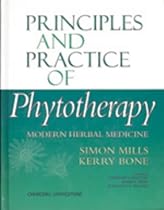 However, it is freely available as a 'dietary supplement' in the USA under DSHEA legislation (1994 dietary supplement health and Education Act).
Astragalus is not included in Part 4 of Schedule 4 of the Therapeutic Goods Act Regulations of Australia.
References
1. Bensky D, Gamble A. Chinese herbal medicine materia medica. Eastland Press, Seattle, 1986, pp 457-459.
2. Chang H, But P. Pharmacology and applications of Chinese materia medica, vol 2. World Scientific, Singapore, 1987, pp 1041-1046.
3. Leung AY, Foster S. However, it is freely available as a 'dietary supplement' in the USA under DSHEA legislation (1994 dietary supplement health and Education Act).
Astragalus is not included in Part 4 of Schedule 4 of the Therapeutic Goods Act Regulations of Australia.
References
1. Bensky D, Gamble A. Chinese herbal medicine materia medica. Eastland Press, Seattle, 1986, pp 457-459.
2. Chang H, But P. Pharmacology and applications of Chinese materia medica, vol 2. World Scientific, Singapore, 1987, pp 1041-1046.
3. Leung AY, Foster S. |
Elaine Feuer
See book keywords and concepts |
 As a direct result of the dietary supplement health and Education Act of 1994 (see Chapter Eight), the FDA removed evening primrose oil from its Import Alert List on 22 December 1994. [FDA Import Alert #66-04] standard American diet, the formulation of prostaglandins is blocked by modern food processing (refining, heating, and processing vegetable and seed oils), and by a lack of the necessary vitamins, minerals, and amino acids. Other factors that inhibit prostaglandin formulation are aging, smoking, drinking, taking medication, stress (high blood pressure), and obesity. As a direct result of the dietary supplement health and Education Act of 1994 (see Chapter Eight), the FDA removed evening primrose oil from its Import Alert List on 22 December 1994. [FDA Import Alert #66-04] standard American diet, the formulation of prostaglandins is blocked by modern food processing (refining, heating, and processing vegetable and seed oils), and by a lack of the necessary vitamins, minerals, and amino acids. Other factors that inhibit prostaglandin formulation are aging, smoking, drinking, taking medication, stress (high blood pressure), and obesity. |
Alan Keith Tillotson, Ph.D., A.H.G., D.Ay.
See book keywords and concepts |
 In 1994 Congress passed the dietary supplement health and Education Act (DSHEA), regulating labeling and sales of herbs and other supplements. This was a great relief to those who fought hard for its passage because it broke a long-standing FDA policy of either restricting natural medicines as if they were drugs or treating them as simple foods.
If the government does a good job of regulating herbal manufacturing, which may involve changing the laws, it will winnow out the good company practices from the bad. Fortunately, herbal medicines have rarely caused serious harm. In 1994 Congress passed the dietary supplement health and Education Act (DSHEA), regulating labeling and sales of herbs and other supplements. This was a great relief to those who fought hard for its passage because it broke a long-standing FDA policy of either restricting natural medicines as if they were drugs or treating them as simple foods.
If the government does a good job of regulating herbal manufacturing, which may involve changing the laws, it will winnow out the good company practices from the bad. Fortunately, herbal medicines have rarely caused serious harm. |
Linda B. White, M.D.
See book keywords and concepts |
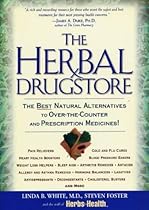 The resulting law—the dietary supplement health and Education Act (DSHEA) of 1994—bowed to the will of the people. It permits the unrestricted sale of herbs, vitamins, minerals, and other substances such as hormones and amino acids—as long as their manufacturers make no medical claims for them. In other words, a manufacturer may sell a product such as echinacea, which is useful against colds and flu, as long as the package doesn't say it will cure colds and flu.
So what can a manufacturer say about the usefulness of a product? The resulting law—the dietary supplement health and Education Act (DSHEA) of 1994—bowed to the will of the people. It permits the unrestricted sale of herbs, vitamins, minerals, and other substances such as hormones and amino acids—as long as their manufacturers make no medical claims for them. In other words, a manufacturer may sell a product such as echinacea, which is useful against colds and flu, as long as the package doesn't say it will cure colds and flu.
So what can a manufacturer say about the usefulness of a product? |
Elaine Feuer
See book keywords and concepts |
 Less than two months after the enactment of the dietary supplement health and Education Act, the FDA violated the new law by conducting raids against clinics, labs, and distributors of nutritional supplements without giving the companies the ten day notice required by Congress. In early February 1995, FDA agents raided Independent Testing Labs, Inc., an analytical laboratory in Grand Island, Nebraska. Less than two months after the enactment of the dietary supplement health and Education Act, the FDA violated the new law by conducting raids against clinics, labs, and distributors of nutritional supplements without giving the companies the ten day notice required by Congress. In early February 1995, FDA agents raided Independent Testing Labs, Inc., an analytical laboratory in Grand Island, Nebraska. |
Simon Mills and Kerry Bone
See book keywords and concepts |
 However, it is freely available as a 'dietary supplement' in the USA under DSHEA legislation (1994 dietary supplement health and Education Act).
Feverfew is not included in Part 4 of Schedule 4 of the Therapeutic Goods Act Regulations of Australia.
References
1. Le Strange R. A history of herbal plants. Angus and Robertson, London: 1977; p 74.
2. Grieve M. A modern herbal, vol 1. Dover Publications, New York 1971; pp 309-310.
3. Felter HW, Lloyd JU. King's American dispensatory, 18th edn, 3rd revision, vol 2,1905. Reprinted by Eclectic Medical Publications, Portland: 1983; pp 1438-1439. However, it is freely available as a 'dietary supplement' in the USA under DSHEA legislation (1994 dietary supplement health and Education Act).
Feverfew is not included in Part 4 of Schedule 4 of the Therapeutic Goods Act Regulations of Australia.
References
1. Le Strange R. A history of herbal plants. Angus and Robertson, London: 1977; p 74.
2. Grieve M. A modern herbal, vol 1. Dover Publications, New York 1971; pp 309-310.
3. Felter HW, Lloyd JU. King's American dispensatory, 18th edn, 3rd revision, vol 2,1905. Reprinted by Eclectic Medical Publications, Portland: 1983; pp 1438-1439. |
Elaine Feuer
See book keywords and concepts |
 Given the FDA's history, there is no reason to believe that the passage of the dietary supplement health and Education Act of 1994 will prevent the FDA from future attempts to regulate vitamins and nutrients as prescription drugs.
CHAPTER NINE
ACQUIRED IMMUNE DEFICIENCY SYNDROME
The most important and urgent task for politicians, both in Government and Parliament, is to force scientists to speak clearly, precisely and honestly about the AIDS epidemic. Given the FDA's history, there is no reason to believe that the passage of the dietary supplement health and Education Act of 1994 will prevent the FDA from future attempts to regulate vitamins and nutrients as prescription drugs.
CHAPTER NINE
ACQUIRED IMMUNE DEFICIENCY SYNDROME
The most important and urgent task for politicians, both in Government and Parliament, is to force scientists to speak clearly, precisely and honestly about the AIDS epidemic. |
Simon Mills and Kerry Bone
See book keywords and concepts |
 Ginger is also freely available as a 'dietary supplement' in the USA under DSHEA legislation (1994 dietary supplement health and Education Act). It has been present in the following OTC drug products: digestive aid drug products and as an ingredient in products offered for use as a smoking deterrent. The FDA, however, advises: 'that based on evidence currently available, there is inadequate data to establish general recognition of the safety and effectiveness of these ingredients for the specified uses'. Ginger is also freely available as a 'dietary supplement' in the USA under DSHEA legislation (1994 dietary supplement health and Education Act). It has been present in the following OTC drug products: digestive aid drug products and as an ingredient in products offered for use as a smoking deterrent. The FDA, however, advises: 'that based on evidence currently available, there is inadequate data to establish general recognition of the safety and effectiveness of these ingredients for the specified uses'. |
Sheldon Saul Hendler and David Rorvik
See book keywords and concepts |
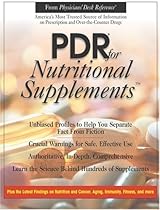 They further argued that because of that situation, the product would not be covered under the dietary supplement health and Education Act (DSHEA) which was passed in 1994. This meant that the product would be regulated by the FDA.
The manufacturer of the proprietary product argued that the FDA approved the lovastatin drug product and not the drug active (lovastatin) and also, that the product is a food product that had been used for centuries in China and thus, would fall under DSHEA. They further argued that because of that situation, the product would not be covered under the dietary supplement health and Education Act (DSHEA) which was passed in 1994. This meant that the product would be regulated by the FDA.
The manufacturer of the proprietary product argued that the FDA approved the lovastatin drug product and not the drug active (lovastatin) and also, that the product is a food product that had been used for centuries in China and thus, would fall under DSHEA. |
Simon Mills and Kerry Bone
See book keywords and concepts |
 However, it is freely available as a 'dietary supplement' in the USA under DSHEA legislation (1994 dietary supplement health and Education Act).
Melilotus is not included in Part 4 of Schedule 4 of the Therapeutic Goods Act Regulations of Australia. Coumarin is listed in the SUSDP (Standard for the Uniform Scheduling of Drugs and Poisons) with a Schedule 4 rating. Such substances are available from a pharmacist on presentation of a prescription by a medical practitioner (doctor, dentist or veterinarian). This restriction also now applies to Melilotus because of its coumarin content. However, it is freely available as a 'dietary supplement' in the USA under DSHEA legislation (1994 dietary supplement health and Education Act).
Melilotus is not included in Part 4 of Schedule 4 of the Therapeutic Goods Act Regulations of Australia. Coumarin is listed in the SUSDP (Standard for the Uniform Scheduling of Drugs and Poisons) with a Schedule 4 rating. Such substances are available from a pharmacist on presentation of a prescription by a medical practitioner (doctor, dentist or veterinarian). This restriction also now applies to Melilotus because of its coumarin content. |
| However, it is freely available as a 'dietary supplement' in the USA under DSHEA legislation (1994 dietary supplement health and Education Act).
Andrographis is not included in Part 4 of Schedule 4 of the Therapeutic Goods Act Regulations of Australia.
References
1. A Panel of Vaidyas. Clinical application of Ayurvedic remedies, Indian medical science series no. 3, 4th edn. Sri Satguru Publications, Delhi 1998, p 100.
2. Kapoor LD. CRC handbook of Ayurvedic medicinal plants. CRC Press, Boca Raton, 1990, p 39.
3. Chopra RN, Chopra IC, Handa KL et al. |
Laurie Deutsch Mozian, M.S., R.D.
See book keywords and concepts |
 Standards for dietary supplements, which are not as stringent as the standards for food additives, are controlled by the dietary supplement health and Education Act, regulated under the Food, Drug and Cosmetic Act. Proponents of stevia as a dietary supplement claim that it can lower blood pressure, strengthen the heart and vascular system, boost immunity, improve digestion, reduce weight, clear up skin problems, act as a contraceptive, and enhance youthfulness. Scanty evidence is available on the validity of these claims.
Stigmasterol (STIG-muh-STER-awl). Standards for dietary supplements, which are not as stringent as the standards for food additives, are controlled by the dietary supplement health and Education Act, regulated under the Food, Drug and Cosmetic Act. Proponents of stevia as a dietary supplement claim that it can lower blood pressure, strengthen the heart and vascular system, boost immunity, improve digestion, reduce weight, clear up skin problems, act as a contraceptive, and enhance youthfulness. Scanty evidence is available on the validity of these claims.
Stigmasterol (STIG-muh-STER-awl). |
Earl Mindell, R.Ph., Ph.D.
See book keywords and concepts |
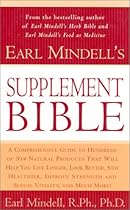 In response to consumer demand, in 1994 Congress passed the dietary supplement health and Education Act (DSHEA), which has radically changed the way supplements are sold and marketed in this country. The law lifted decades of regulatory barriers that had made it difficult, if not impossible, to bring new supplements to market. For one thing, most supplements are derived from natural products, and natural products cannot be patented. In response to consumer demand, in 1994 Congress passed the dietary supplement health and Education Act (DSHEA), which has radically changed the way supplements are sold and marketed in this country. The law lifted decades of regulatory barriers that had made it difficult, if not impossible, to bring new supplements to market. For one thing, most supplements are derived from natural products, and natural products cannot be patented. |
Gale Maleskey
See book keywords and concepts |
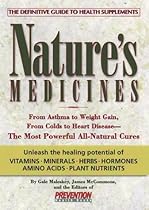 The Food and Drug Administration (FDA) banned over-the-counter sales of DHEA in 1985, but the ban was lifted with the passage of the dietary supplement health and Education Act of 1994. This law allows certain substances to be sold for human consumption without FDA approval, as long as they are marketed as "dietary supplements" and not labeled for a particular use like prescription or over-the-counter drugs.
To make DHEA supplements, vitamin and pharmaceutical companies extract sterols, most commonly diosgenin, from wild yams. The Food and Drug Administration (FDA) banned over-the-counter sales of DHEA in 1985, but the ban was lifted with the passage of the dietary supplement health and Education Act of 1994. This law allows certain substances to be sold for human consumption without FDA approval, as long as they are marketed as "dietary supplements" and not labeled for a particular use like prescription or over-the-counter drugs.
To make DHEA supplements, vitamin and pharmaceutical companies extract sterols, most commonly diosgenin, from wild yams. |
Grace Ross Lewis
See book keywords and concepts |
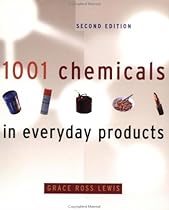 According to the dietary supplement health and Education Act of 1994, this has not been defined. These are probably dietary supplements that the FDA no longer oversees.
4. When does a soap become a cosmetic?
If the manufacturer makes a cosmetic claim on the label, such as "moisturizing" or "deodorizing", the product must meet all FDA requirements for a cosmetic and the label must list all ingredients.
5. When does soap become a drug? According to the dietary supplement health and Education Act of 1994, this has not been defined. These are probably dietary supplements that the FDA no longer oversees.
4. When does a soap become a cosmetic?
If the manufacturer makes a cosmetic claim on the label, such as "moisturizing" or "deodorizing", the product must meet all FDA requirements for a cosmetic and the label must list all ingredients.
5. When does soap become a drug? |
Simon Mills and Kerry Bone
See book keywords and concepts |
 However, it is freely available as a 'dietary supplement' in the USA under DSHEA legislation (1994 dietary supplement health and Education Act).
Berberis is not included in Part 4 of Schedule 4 of the Therapeutic Goods Act Regulations of Australia.
Development of a monograph on Hydrastis is pending and may appear in the United States Pharmacopoeia - National Formulary subsequent to June 1999.
Hydrastis canadensis is not covered by a Commission E monograph but it is on the UK General Sale List.
Hydrastis does not have GRAS status. However, it is freely available as a 'dietary supplement' in the USA under DSHEA legislation (1994 dietary supplement health and Education Act).
Berberis is not included in Part 4 of Schedule 4 of the Therapeutic Goods Act Regulations of Australia.
Development of a monograph on Hydrastis is pending and may appear in the United States Pharmacopoeia - National Formulary subsequent to June 1999.
Hydrastis canadensis is not covered by a Commission E monograph but it is on the UK General Sale List.
Hydrastis does not have GRAS status. |
David Heber, M.D., Ph.D.
See book keywords and concepts |
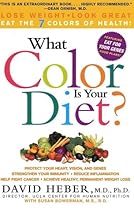 It is your right to choose to take these supplements and is guaranteed by law in a bill called the "Dietary Supplement Health Education Act," passed by the U.S. Congress in 1994.
While the supplements listed above are to maintain your health, the herbal supplements listed below can be used to help you with some common ailments that lend themselves to self-care. I would like to give you a brief tour of some of the most popular herbs on the market today. I could write much more, but this is intended as only a brief introduction to the herbal bounty of the plant world. It is your right to choose to take these supplements and is guaranteed by law in a bill called the "Dietary Supplement Health Education Act," passed by the U.S. Congress in 1994.
While the supplements listed above are to maintain your health, the herbal supplements listed below can be used to help you with some common ailments that lend themselves to self-care. I would like to give you a brief tour of some of the most popular herbs on the market today. I could write much more, but this is intended as only a brief introduction to the herbal bounty of the plant world. |
Marion Nestle
See book keywords and concepts |
 Dietary Supplement Health and Education Act (DSHEA) (Public Law 103-417):
• Defines supplements as amino acids, herbs, botanicals, metabolites, and diet products as well as vitamins and minerals.
• Makes the FDA responsible for proving that a supplement is harmful, rather than making the manufacturer prove that it is not harmful.
• Ends the FDA's independent authority to remove harmful products from the market.
• Makes the Secretary of Health and Human Services responsible for initiating court proceedings against harmful products. Dietary Supplement Health and Education Act (DSHEA) (Public Law 103-417):
• Defines supplements as amino acids, herbs, botanicals, metabolites, and diet products as well as vitamins and minerals.
• Makes the FDA responsible for proving that a supplement is harmful, rather than making the manufacturer prove that it is not harmful.
• Ends the FDA's independent authority to remove harmful products from the market.
• Makes the Secretary of Health and Human Services responsible for initiating court proceedings against harmful products. |
| Structure/function (s/f) statements refer to benefits for correcting nutrient deficiencies, improving a bodily structure or function, or promoting well-being. dThe dietary supplement health and Education Act of 1994 (DSHEA) requires structure/function statements on supplement labels to be accompanied by the following disclaimer: "This statement has not been evaluated by the Food and Drug Administration. This product is not intended to diagnose, treat, cure, or prevent any disease."
TABLE 28. |
| The present anarchy in the dietary supplement marketplace is the result of decades of political action by the makers of these products, culminating in the industry's crowning achievement—the dietary supplement health and Education Act of 1994, an act invariably referred to as DSHEA (pronounced "D'Shay"). As we shall see, DSHEA gave the industry everything it wanted and then some; it deregulated dietary supplements and undermined the FDA's regulatory authority over supplements and conventional foods as well. |
| Structure/function claim permitted under provisions of the dietary supplement health and Education Act (DSHEA) of 1994.
The asterisk refers to the DSHEA disclaimer: "This statement has not been evaluated by the Food and Drug Administration. This product is not intended to diagnose, treat, cure or prevent any disease." fStructure/function claim used because the product is too high in fat to meet requirements for an FDA-authorized health claim. |
Robert S. McCaleb, Evelyn Leigh, and Krista Morien
See book keywords and concepts |
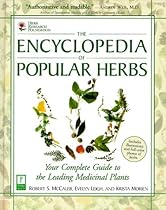 Congress unanimously passed a bill called the dietary supplement health and Education Act (DSHEA), which defined dietary supplements and forbade the FDA from treating them as food chemicals or drugs unless manufacturers made drug claims for their products. Most important, DSHEA allows dietary supplements to bear health benefit claims called "statements of nutritional support," which are commonly referred to as structure/Junction claims because they may describe the effect of the supplement on the structure or function of the body. Congress unanimously passed a bill called the dietary supplement health and Education Act (DSHEA), which defined dietary supplements and forbade the FDA from treating them as food chemicals or drugs unless manufacturers made drug claims for their products. Most important, DSHEA allows dietary supplements to bear health benefit claims called "statements of nutritional support," which are commonly referred to as structure/Junction claims because they may describe the effect of the supplement on the structure or function of the body. |
Larry Trivieri, Jr.
See book keywords and concepts |
 Congress passed the dietary supplement health and Education Act of 1994 (DSHEA), which created a new legal category called dietary supplements, including vitamins, minerals, amino acids, herbs, and related consumer health products that were ingested as part of the diet. DSHEA allowed herb products to claim limited benefits, so long as these statements were not disease claims (the product did not claim to treat, cure, or prevent a disease). Congress passed the dietary supplement health and Education Act of 1994 (DSHEA), which created a new legal category called dietary supplements, including vitamins, minerals, amino acids, herbs, and related consumer health products that were ingested as part of the diet. DSHEA allowed herb products to claim limited benefits, so long as these statements were not disease claims (the product did not claim to treat, cure, or prevent a disease). |
Elaine Feuer
See book keywords and concepts |
 A few months later Senator Hatch and Congressman Bill Richardson sponsored the dietary supplement health and Education Act, to establish a regulatory framework for vitamins, minerals, herbs, amino acids, and other dietary supplements; to protect supplements from being arbitrarily removed from the market as food additives; and to protect consumers by guaranteeing their right to obtain safe nutritional products and truthful, science-based information about their benefits.
In his introductory statement for the House bill, Rep. A few months later Senator Hatch and Congressman Bill Richardson sponsored the dietary supplement health and Education Act, to establish a regulatory framework for vitamins, minerals, herbs, amino acids, and other dietary supplements; to protect supplements from being arbitrarily removed from the market as food additives; and to protect consumers by guaranteeing their right to obtain safe nutritional products and truthful, science-based information about their benefits.
In his introductory statement for the House bill, Rep. |
Michael Janson, M.D.
See book keywords and concepts |
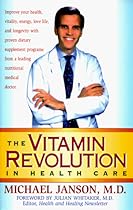 Sincerely, Linus Pauling
Unfortunately, in spite of the ultimate passage of a watered down version of the dietary supplement health and Education Act, there are still political, behind-the-scenes maneuverings that make it unclear what will happen with regulation and oversight of dietary supplements by the FDA. The FDA officials and lawyers have been working tirelessly to "interpret" the language of the bill to try to maintain their inappropriate restriction on availability of supplements and on access to information about them. Sincerely, Linus Pauling
Unfortunately, in spite of the ultimate passage of a watered down version of the dietary supplement health and Education Act, there are still political, behind-the-scenes maneuverings that make it unclear what will happen with regulation and oversight of dietary supplements by the FDA. The FDA officials and lawyers have been working tirelessly to "interpret" the language of the bill to try to maintain their inappropriate restriction on availability of supplements and on access to information about them. |
Paul A. Offit, M.D.m Bonnie Fass-Offit, M.D. and Louis M. Bell, M.D.
See book keywords and concepts |
 In 1994, Congress passed the dietary supplement health and Education Act. This law allowed herbs, plant products, vitamins, and some chemicals to be sold as dietary supplements provided that health or therapeutic claims were not specified on the label. What constitutes a therapeutic claim is apparently unclear. For example, some preparations of Echinacea purpurea have labels that contain phrases like "immune support formula."
In a sense, the FDA has taken a step back from these "alternative" products. In 1994, Congress passed the dietary supplement health and Education Act. This law allowed herbs, plant products, vitamins, and some chemicals to be sold as dietary supplements provided that health or therapeutic claims were not specified on the label. What constitutes a therapeutic claim is apparently unclear. For example, some preparations of Echinacea purpurea have labels that contain phrases like "immune support formula."
In a sense, the FDA has taken a step back from these "alternative" products. |
Michael Janson, M.D.
See book keywords and concepts |
 The dietary supplement health and Education Act would allow these products to remain on the market with substantiated health claims based on scientific data. FDA and CSPI do not speak for or protect the public on this issue, and their comments are usually unsubstantiated opinion.
3. I couldn't practice medicine responsibly without many of the substances that the FDA has already tried and will continue to try to remove from the market. I base this on what I have read from their own position papers.
4. The vast majority of the population do not want the FDA to restrict dietary supplements. The dietary supplement health and Education Act would allow these products to remain on the market with substantiated health claims based on scientific data. FDA and CSPI do not speak for or protect the public on this issue, and their comments are usually unsubstantiated opinion.
3. I couldn't practice medicine responsibly without many of the substances that the FDA has already tried and will continue to try to remove from the market. I base this on what I have read from their own position papers.
4. The vast majority of the population do not want the FDA to restrict dietary supplements. |
Mark Blumenthal
See book keywords and concepts |
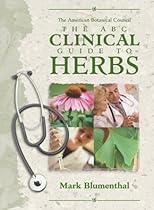 Archivum Immunologiae et
Therapiae Experimentalis 1992;40:291-5. egetenmaier j, marz r. double-blind study of sinupret drops versus ambroxol drops in acute uncomplicated (tracheo-) bronchitis. 1991. elstner e, kleber e. radical scavenger properties of leucocyanidine. proceedings of the 3rd international symposium on flavonoids in biology & medicine. 1989 nov 13-17; singapore, china; 1989. ernst e, marz rw, seider c. acute bronchitis—benefits of sinupret® [in german].
Fortschritte der Medizin 1997;115(11):52-3. escop. Archivum Immunologiae et
Therapiae Experimentalis 1992;40:291-5. egetenmaier j, marz r. double-blind study of sinupret drops versus ambroxol drops in acute uncomplicated (tracheo-) bronchitis. 1991. elstner e, kleber e. radical scavenger properties of leucocyanidine. proceedings of the 3rd international symposium on flavonoids in biology & medicine. 1989 nov 13-17; singapore, china; 1989. ernst e, marz rw, seider c. acute bronchitis—benefits of sinupret® [in german].
Fortschritte der Medizin 1997;115(11):52-3. escop. |
Michael Janson, M.D.
See book keywords and concepts |
 Whether you are just beginning a dietary supplement health program, or if you are a physician just starting in the field, you will benefit by trying only one or a few supplements and adding new ones as you become more familiar with the substances.
You know your body's individual responses better than anyone else, in some ways even better than your health practitioner, and you have to use that information to create your own health or to help your health practitioner guide you. Whether you are just beginning a dietary supplement health program, or if you are a physician just starting in the field, you will benefit by trying only one or a few supplements and adding new ones as you become more familiar with the substances.
You know your body's individual responses better than anyone else, in some ways even better than your health practitioner, and you have to use that information to create your own health or to help your health practitioner guide you. |
| My testimony at the Senate Committee on Labor and Human Resources hearings on the dietary supplement health and Education Act is in this chapter. There is also some information on the political situation as of 1995, and some information about similar problems that proponents of dietary supplements face in Canada.
The information in this book is an integral part of the total health picture. Already nearly half of the United States population take dietary supplements at least some of the time, and many of them take supplements every day. |












